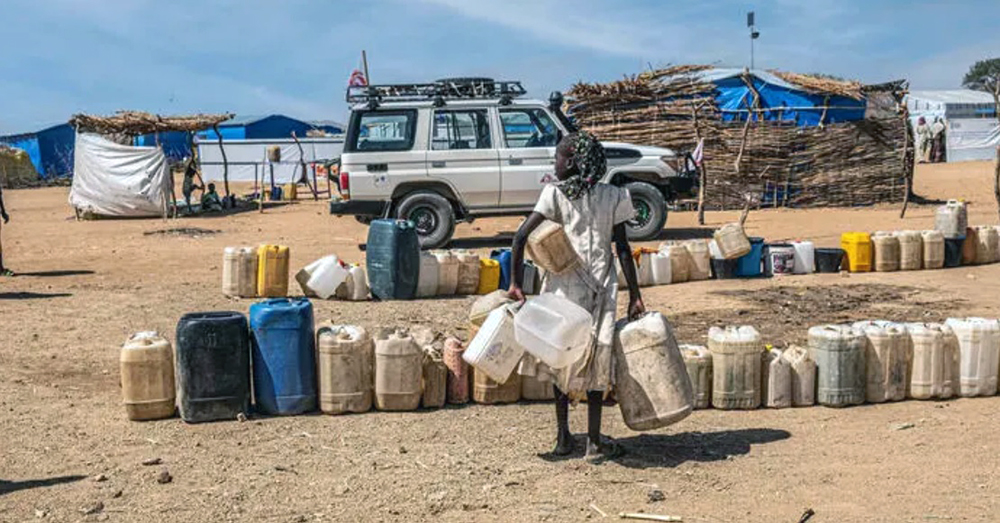
Médecins Sans Frontières: Hepatitis E Spreading in Refugee Camps in Chad
moatinoon
Médecins Sans Frontières (MSF) has stated that hepatitis E is spreading in refugee camps in eastern Chad, where more than 550,000 Sudanese have sought refuge from the conflict in neighboring Sudan. The organization has called on international donors and humanitarian organizations to urgently intensify efforts to prevent an imminent health crisis by improving sanitation and providing clean drinking water in all refugee camps and settlements in eastern Chad.
The organization explained that camps such as Adré, Abougoudam, MeÌtché, and Aché experienced a significant increase in cases of hepatitis E, directly linked to inadequate sanitation and limited access to clean water.
It reported that so far, 954 cases of hepatitis E have been recorded among refugees, including 11 pregnant women, with four fatalities. Most cases (469) were in Adré camp, where 122,000 people await relocation to permanent refugee camps. Additionally, our teams recorded 292 cases in Abougoudam, 132 cases in MeÌtché, and 41 cases in Aché camps.
Erneau Mondesir, MSF medical coordinator in Adré, said, "This is a health risk not only for refugees but also for host communities." He continued, "The situation is dire in all camps."
He added, "Without quick action to improve sanitation infrastructure and enhance peoples access to clean water, we risk seeing an increase in preventable diseases and unnecessary loss of lives."
The spread of hepatitis E is exacerbated by poor sanitation and severe water shortages in camps scattered throughout the Wadi Fira region of Chad.
In Adré camp, there is only one toilet for every 677 people, while in MeÌtché camp, there is one toilet for every 225 people.
The organization stated that it is intensifying its health promotion activities, with a particular focus on pregnant women and new mothers, to increase awareness of how people can protect themselves from the disease and prevent its further spread.
Hepatitis E is a highly infectious viral infection primarily transmitted through contaminated water. It poses a serious threat to people living in overcrowded and unsanitary environments and can be fatal. Hepatitis E, particularly dangerous for pregnant women and people with chronic conditions like diabetes.

